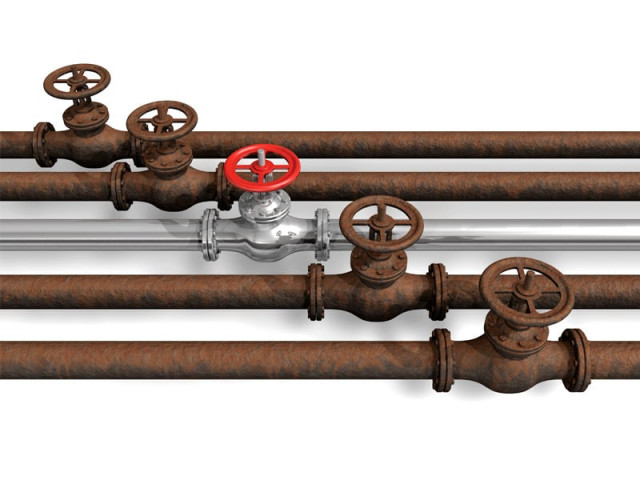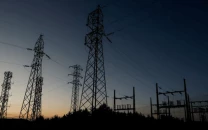Financing the debt: Govt mulls squeezing Rs100b from oil and gas sector
Petroleum minister proposes charging levy of Rs5 per kg on CNG and LPG.

In an effort to partly retire circular debt that according to unaudited estimates has mounted to Rs332 billion, the petroleum ministry has proposed extracting Rs100 billion from the oil and gas sector through taxes.
Minister for Petroleum and Natural Resources Dr Asim Hussain presented the package during meetings of the special cabinet panel on energy crisis, said sources familiar with the matter. According to the proposal, the government can extract Rs100 billion by charging a petroleum levy on Compressed Natural Gas (CNG) and Liquefied Petroleum Gas (LPG). The minister is also said to have proposed increasing the gas development surcharge.
Taxing CNG and LPG
Commenting on the proposal, a committee member said that Hussain’s offer was practical since gas prices in Pakistan are still comparably low. A five-member cabinet panel is reviewing various options to address the energy crisis and has been assigned to complete its homework by the end of next week. The committee will table the proposals in the cabinet meeting.
It is not yet clear though whether Hussain’s proposal would be part of the final set of recommendations and how the government would move against the influential oil and gas lobby in the country.
“The government may impose Rs5 per kg petroleum levy on CNG and on locally produced LPG, equal to the freight component of imported LPG, to generate funds to end circular debt,” sources said.
They added that the petroleum minister has also asked the government to tax other sectors to tackle debt.
Tariff determination
The energy committee also found several flaws in electricity tariff determination by National Electric Power Regulatory Authority (Nepra), resulting in mounting of circular debt. Accounting for line losses is one of main problems.
For the current fiscal year, Nepra has asked power distribution companies to reduce line losses to 16%, against current losses of over 19%.
Subsidy to KESC
Power subsidy for consumers of Karachi Electric Supply Company is also compounding the circular debt issue, the committee observed, adding that the government had agreed to Rs15 per unit tariff during KESC’s privatisation.
“Under political compulsions, the KESC is forced to charge Rs9 per unit from consumers and the remaining Rs6 per unit is being subsidised by government, amounting to Rs72 billion per year,” sources said.
For the current fiscal year, the government has budgeted Rs24 billion in subsidy for KESC – the remaining amount will add up to the circular debt.
Transmission infrastructure
In order to meet medium-term needs, the current power transmission structure requires at least Rs86 billion in investment, the National Transmission and Dispatch Company officials said while briefing a sub-committee on energy crisis on Friday.
Non-availability of finances and volatile law and order situation restricting entry of foreign consultants in the sector are major obstacles to upgrading the infrastructure, they added. ( with additional reporting by shahbaz rana)
Published in The Express Tribune, August 13th, 2011.



















COMMENTS
Comments are moderated and generally will be posted if they are on-topic and not abusive.
For more information, please see our Comments FAQ